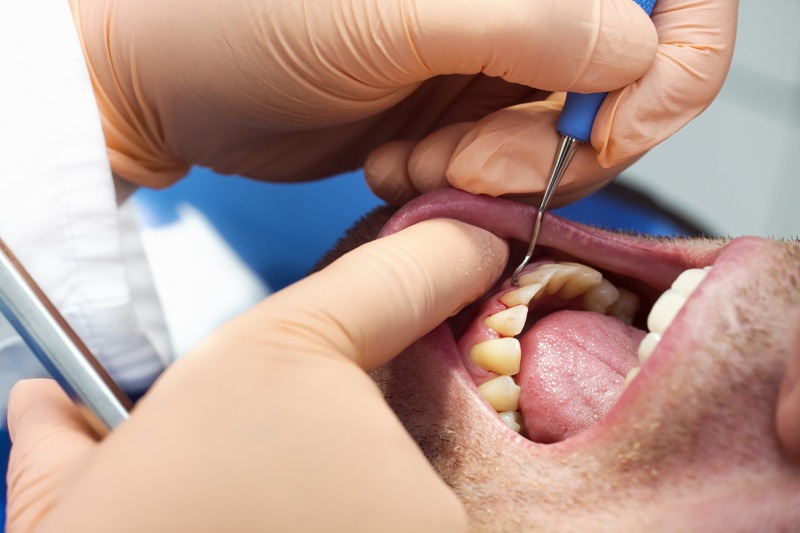Proper hydration benefits not only overall health but also oral cleanliness. Drinking adequate water supports dental hygiene, freshness of breath, and healthy gums. Maintaining hydration regularly can serve as a simple yet effective practice for preserving oral health and reducing dental issues.
Why is Drinking Enough Water Important for Mouth Health?
Maintains Ideal Saliva Levels
Saliva plays a significant role in keeping your mouth healthy. Adequate saliva helps wash away food particles, neutralize acids released by bacteria, and repair minor tooth enamel damage. If you’re dehydrated, your body produces less saliva, resulting in dryness that can promote tooth decay and gum problems.
Sufficient hydration ensures your salivary glands function properly. It provides necessary moisture, preventing dryness that can make the condition uncomfortable. Frequent water intake significantly decreases the risks associated with insufficient saliva within your oral cavity.
Flushes Away Food Particles and Bacteria
Drinking water actively helps in removing bacteria and food particles leftover after meals. Individuals who forget to hydrate sufficiently may experience more bacteria growth, plaque buildup, and tooth decay. Water washes away these harmful bacteria, creating a cleaner environment within your mouth.
When you drink plenty of water, you enable your body to efficiently eliminate waste materials from your oral surfaces. Additionally, consistent hydration reduces the number of harmful microorganisms that dwell inside your mouth. Healthier oral tissues result from sufficient water intake, promoting a balanced oral hygiene environment.
Reduces Bad Breath Issues
Staying hydrated effectively addresses breath odors caused by dry mouth conditions. Bad breath generally arises from bacterial accumulation, particularly when saliva does not adequately wash away these microorganisms. Frequent water consumption combats bad breath by ensuring proper hydration, leading to suitable production of saliva.
Individuals who hydrate frequently experience fewer instances of unpleasant oral odors compared to those who neglect their fluid intake. Drinking water consistently freshens your breath naturally by moisturizing oral tissues and regulating bacterial activity throughout your mouth. Water provides essential moisture, aiding your oral cavity’s self-cleaning capabilities.
Promotes Healthy Gums
Gums require proper hydration to stay healthy. Dry oral tissues weaken gums, leading to inflammation and potential gum diseases. Proper hydration maintains healthy gums by stimulating adequate saliva flow, thereby protecting gum tissues from disease-causing bacteria and irritation.
Prevents Cavities Formation
Sufficient hydration significantly contributes to cavity prevention. Water consumption during and after meals prevents tooth decay by washing sugary substances and acid-producing bacteria away from tooth surfaces. This minimizes steady acid exposure, reducing the potential damage that forms cavities.
Proper hydration supports saliva’s natural ability to repair minor enamel erosion and neutralizes oral acids effectively. Individuals who prioritize drinking plenty of water experience fewer cavities and better overall oral health. Combining adequate hydration with regular dental care promotes lasting dental wellness and cavity prevention.
For children, who are more susceptible to cavities, incorporating these habits early sets the foundation for lifelong oral health. It’s important for parents to instill these habits alongside regular dental check-ups. Combining adequate hydration with consistent pediatric dental care in Kearney promotes lasting dental wellness and cavity prevention.
What Are the Best Practices for Staying Hydrated for Oral Hygiene?
Drink Water Throughout the Day
Consistent hydration throughout the day ensures excellent oral and physical health. Below are practical tips for keeping hydrated daily:
-
Carry a reusable water bottle everywhere you go.
-
Drink small amounts frequently instead of one large intake.
-
Choose plain water instead of sugary drinks like soda or juice.
Staying hydrated consistently helps to maintain a clean environment inside your mouth. Additionally, drinking water immediately after meals washes food particles away and decreases tooth decay risks. Making water your beverage of choice clearly improves dental hygiene efforts.
Include Hydrating Foods in Your Diet
Besides drinking water, incorporating hydrating foods in your diet supports oral health. These foods provide vitamins and minerals essential for teeth and gum health:
-
Cucumber: Contains water, improving hydration and saliva production.
-
Watermelon: Includes antioxidants that help gums stay healthy.
-
Celery: Its crunchy texture cleans teeth naturally by scraping debris.
Eating these hydrating foods regularly supports oral wellness by combining effective moisture with oral health-boosting nutrients. Alongside consuming fluids, eating water-rich foods amplifies overall mouth cleanliness and comfort.
Regular Dental Visits
Hydration complements regular dental visits, significantly enhancing your oral health. Regular dental checkups include professional advice and preventive strategies provided by an experienced Kearney dentist. They detect early signs of dehydration affecting oral conditions, suggesting efficient approaches for hydration management and suitable interventions.
Sufficient water consumption combined with scheduled dental checkups allows anticipation of oral hygiene concerns. Dentists can professionally evaluate your state of hydration through oral conditions and guide beneficial hydration routines. Consistent dental evaluations alongside hydration keep teeth and gums optimal.
Avoid Thirst-Inducing Foods and Beverages
Reducing high salt intake, caffeine, and alcohol consumption decreases dehydration risk. These dehydrating agents remove moisture, contributing negatively to oral health due to reduced saliva levels. Avoiding these foods ensures sufficient mouth hydration, protecting dental tissues.
Limiting intake of thirst-inducing foods alongside regular fluid intake ensures your oral cavity has enough moisture. Choosing hydrating drinks or foods instead preserves your gums’ well-being, reducing dryness. Healthy dietary selections maintain oral humidity, which is necessary for improved hygiene and dental protection.
Monitor Water Quality
Drinking clean, safe water matters not only for your overall health but also for your teeth and gums. Water containing fluoride strengthens tooth enamel effectively, combating tooth decay. Drinking fluoridated water directly supports your dental health by naturally protecting the enamel’s surface resilience.
Make sure your drinking water meets appropriate quality standards. Having filtered or adequately treated water at home offers continuous health benefits, including oral hygiene improvement. Ensuring sufficient fluoride in drinking water directly aids long-term dental health.
Protecting Hydrated Teeth Through Cosmetic Options
Diverse cosmetic treatments offer extra protection to adequately hydrated dental surfaces. Dental solutions like permanent porcelain veneers help protect teeth’s surfaces, enhancing aesthetics and oral hygiene simultaneously. Hydrated oral tissues benefit actively from protective options, including veneers, significantly amplifying dental wellness alongside regular hydration.
Considering proven protective procedures, like cosmetic options enhancing tooth surfaces, reinforces daily hydration efforts positively. When teeth have cosmetic protection, moisture contributions from hydration routines enhance veneers’ effectiveness and longevity. Combined practices maintain aesthetically appealing oral health sustenance.
Final Thoughts
Effective hydration significantly supports robust oral health, preventing tooth decay, bad breath, and gum disease. Consistently drinking water alongside consuming hydrating foods and regular dental practices enhances oral hygiene practices. Prioritize sufficient hydration daily for optimal dental wellness.




